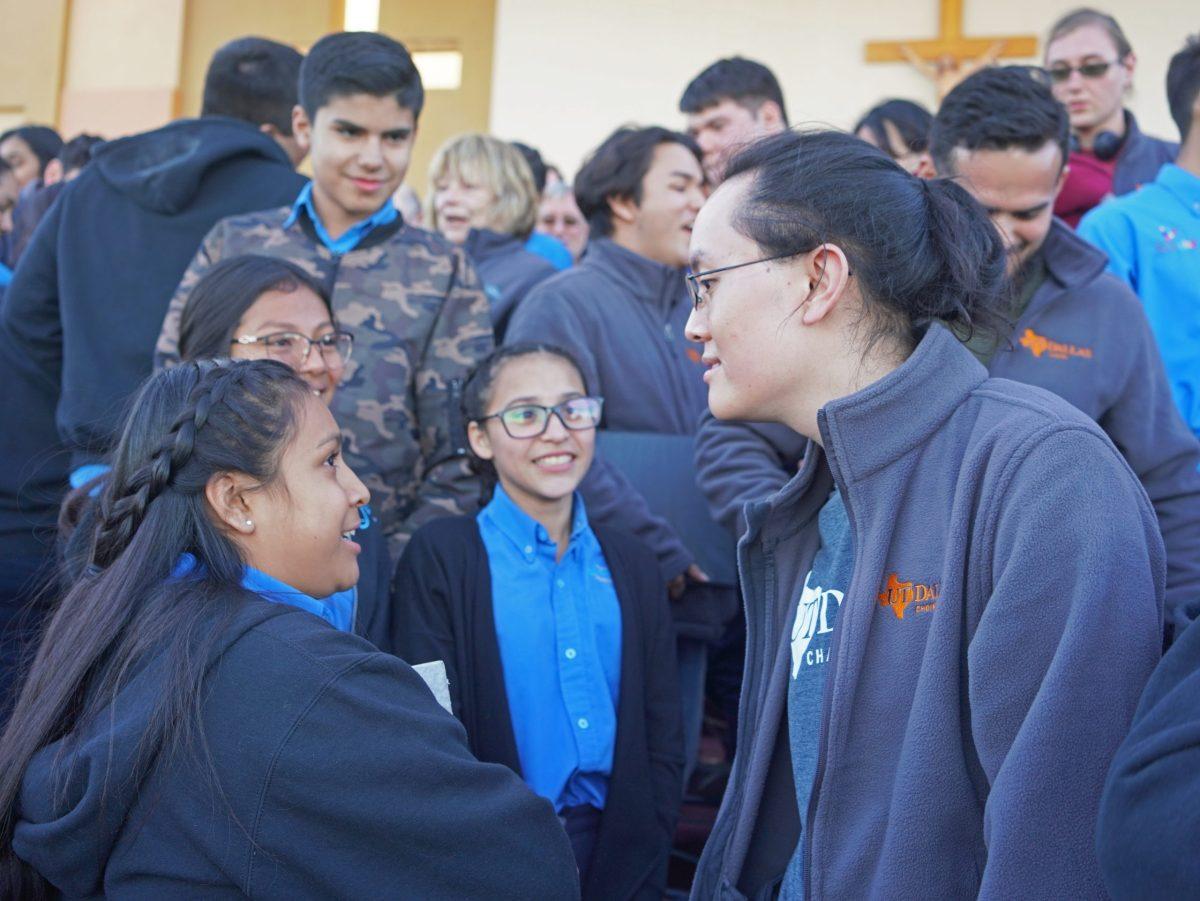
UTD's choir performed alongside other choir and orchestra groups in Ciudad, Juarez in January. | Photo Courtesy of Jonathan Palant
Performance promotes healing through music following 2019 El Paso shooting
Standing shoulder to shoulder, singing out the last few
notes of “Let There Be Peace On Earth,” the singers varying in their ages,
backgrounds, languages and nationalities conveyed a message of unity and
support.
From Jan. 18-19, Jonathan Palant — director of UTD’s choir
and Dallas’ Credo Community — organized “Reconnecting Through Art” festivals in
Ciudad Juárez, Mexico on the first day and El Paso, Texas on the second. As a result of months of planning alongside a
contact in Mexico, Palant was able to bring around 40 UTD students and Dallas’
Credo Community Choir.
Palant came up with the idea after a gunman from Allen
killed 22 people in a Walmart in El Paso on Aug. 3 of last year. When he first
heard word of the shooting that night, Palant was at a play that addressed
immigration issues at the border.
“The only thing I knew to do was to bring music to the
border to promote healing,” Palant said. “It wasn’t about the music, it was
about the music as a conduit to bring people together in peace.”
UTD’s choir and Dallas’s Credo Community Choir sang alongside
Ciudad Juárez’s Esperanza Azteca Youth Orchestra and Chorus, ensembles from the
University of Texas at El Paso and renowned opera singer Frederica von Stade.
“The goal was to bring communities together that otherwise
wouldn’t have come together, and we did that through music and art,” Palant
said. “Those from Mexico, those from South Texas, those from North Texas. The
goal was never about a big audience; it was to support the El Paso community
and say that we don’t want the community to be remembered because of a
shooting, we want the community to be thought of as coming together through
art.”
This form of art, in music, has various meanings to the
students who volunteered and had to fund themselves to go on the trip. Visual
and performing arts senior Benjamin Wise said that art is a universal language.
“We went to El Paso and people who spoke Spanish and people
who didn’t speak Spanish still had this moment of coming together and bonding
over the music that they shared,” Wise said. “It’s a way of showing empathy
without necessarily being able to directly communicate with someone.”
In addition to performing to the community, the UTD choir
went as a large group to a local homeless shelter to do community service for a
few hours.
“That was more of a corporeal, here’s a thing we can do,”
Solvay Linde, an ATEC and computer science sophomore said. “We can help you
make sandwiches for people and sort things, but just being there, I think, the
unity we provided just by showing up, talking to people, and showing that we
care was probably more impactful than service work.”
In order to follow
the themes of compassion that the festival tried to convey, Palant selected
individual songs with similar meanings.
“‘When We Love’ by Elaine Hagenberg is a gorgeous, powerful song
talking about the effect of love, not just the person who’s getting the love,
but also the person who is giving the love,” Wise said. “That was kind of the
relationship that we were trying to get with us going to El Paso. We’re going
with this attitude of service, but it also changes us.”
Like all choirs, the UTD choir aims to sing well, but they
also have a mission beyond that: the choir has a sense of a greater social
purpose, which is really inspiring, Wise said.
“For me, it reinforced this notion that we have a power in
our community and the things we can do as a group are greater than the things
we can do as individuals,” Linde said.